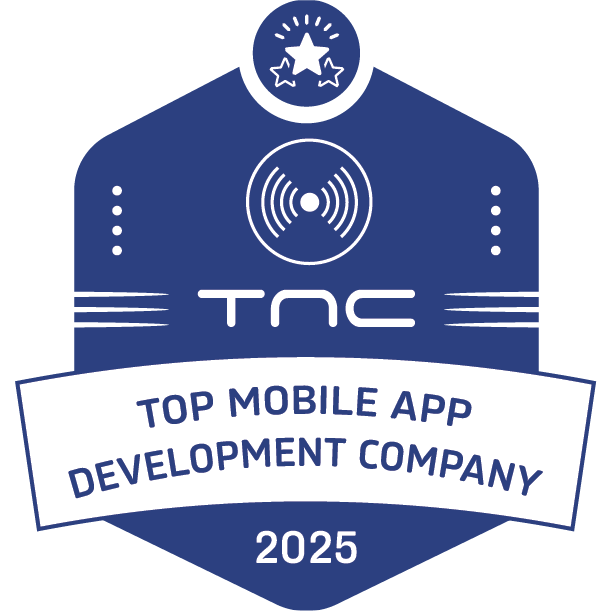In the fast-paced world of financial technology, staying ahead means staying smart. And in 2025, the smartest players in the game are doubling down on Artificial Intelligence (AI) and Machine Learning (ML) to transform how users interact with money, how risks are assessed, and how financial products are built and delivered.
From AI-powered chatbots to predictive analytics and autonomous finance, the role of AI/ML in fintech app development is no longer futuristic—it’s essential. In this blog, we’ll explore what’s new in AI and ML for fintech in 2025, how it’s shaping the user experience, and what businesses need to know when integrating these technologies.
🤖 The Evolution of AI/ML in Fintech
Artificial Intelligence and Machine Learning aren’t new to fintech, but the pace of innovation has accelerated significantly over the last two years. In 2023 and 2024, we saw increasing adoption of chatbots, fraud detection systems, and robo-advisors.
But in 2025, the game has changed:
- Generative AI is now personalizing financial journeys.
- ML models are training on real-time data for proactive financial health insights.
- AI copilots are helping developers and analysts build financial apps faster and more securely.
The convergence of big data, open banking APIs, real-time payment systems, and cloud computing has set the perfect stage for AI and ML to flourish in fintech.
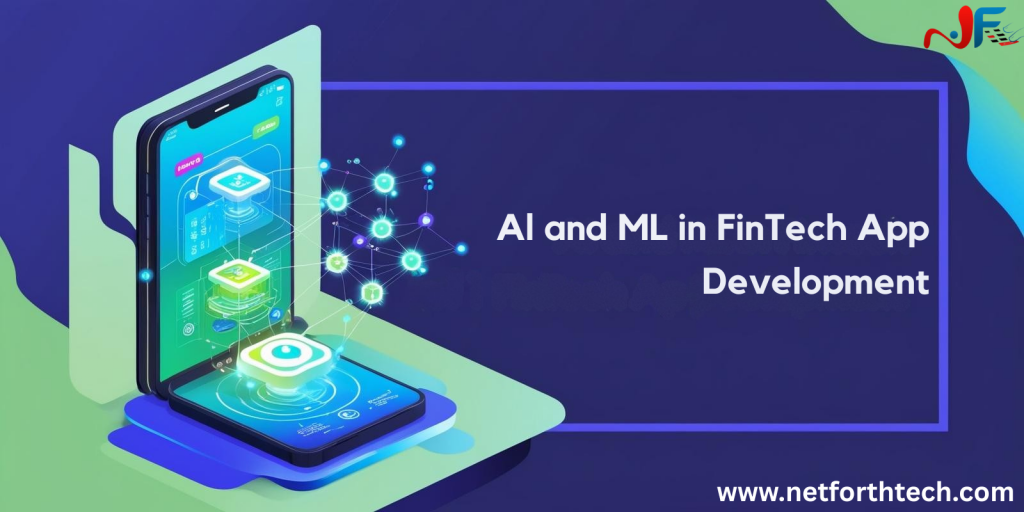
🔍 What’s New in 2025?
Let’s break down the key innovations in AI/ML that are redefining fintech app development this year:
1. 🧠 Generative AI for Financial Guidance
2025 has seen a massive leap in Generative AI models trained specifically on financial data. Fintech apps are now integrating GenAI-powered financial advisors that can:
- Create custom budgeting plans.
- Offer real-time tax-saving suggestions.
- Simulate investment scenarios.
- Write financial summaries based on user activity.
Instead of predefined responses, users now get context-aware, personalized insights that evolve over time.
💡 Example: An AI chatbot in a neobank app can now detect changes in your spending habits and recommend cutting discretionary spending based on your financial goals.
2. 🔐 AI-Powered Fraud Detection 2.0
Traditional fraud systems relied on rule-based triggers. In 2025, adaptive machine learning models can analyze millions of transactions in milliseconds, flag anomalies in real time, and learn from new fraud patterns autonomously.
- Deep learning models now understand behavioral biometrics.
- Multi-layered fraud scoring engines use AI to provide faster approvals with higher security.
- AI systems are now being trained using synthetic fraud data to enhance detection accuracy.
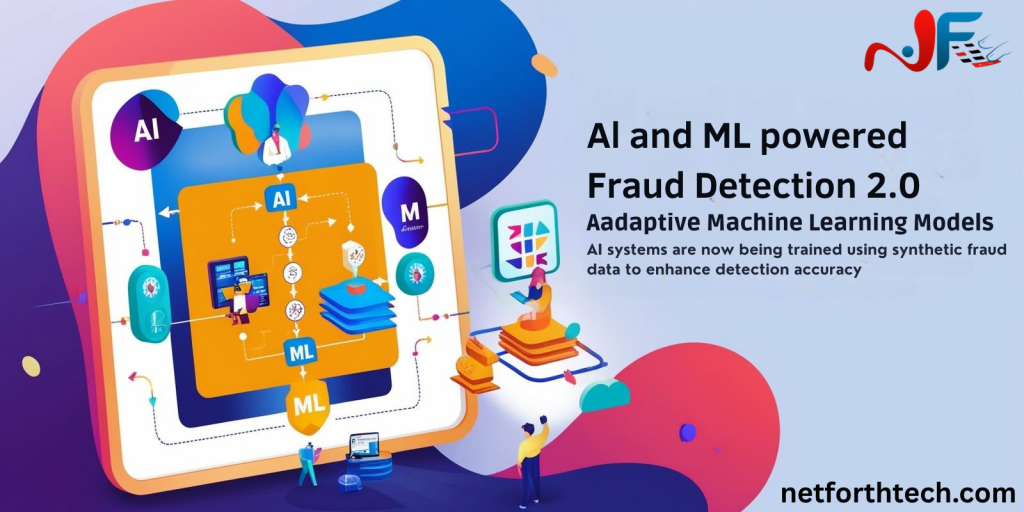
3. 🤝 Hyper-Personalization with Predictive ML
Fintech apps are expected to “know” their users. Predictive ML models now power:
- Spending forecasts based on past trends.
- Investment suggestions based on life goals, income, and risk appetite.
- Loan eligibility models tailored to real-time financial behavior, not just credit scores.
Using ML, apps can now create micro-segments—delivering offers or financial advice that feels tailor-made for each user.
4. 🏦 AI in Lending & Credit Scoring
In 2025, AI-driven lending has reached new maturity:
- Alternative credit scoring uses data like mobile usage, online purchases, and even social behavior.
- Real-time income verification and automated underwriting allow instant loan approvals.
- Lenders can now reduce default risk using explainable AI (XAI) that shows why a decision was made.
This democratizes credit access for gig workers, freelancers, and underbanked populations.
5. 💬 AI Chatbots & Voice Assistants Get Smarter
AI chatbots are now indistinguishable from human agents, thanks to large language models (LLMs) trained on financial conversations.
- Voice assistants integrated with fintech apps can complete fund transfers, give financial summaries, and even answer questions like “Can I afford a vacation next month?”
- Sentiment analysis is now part of customer service—allowing fintech apps to detect frustration and automatically escalate to a human agent.
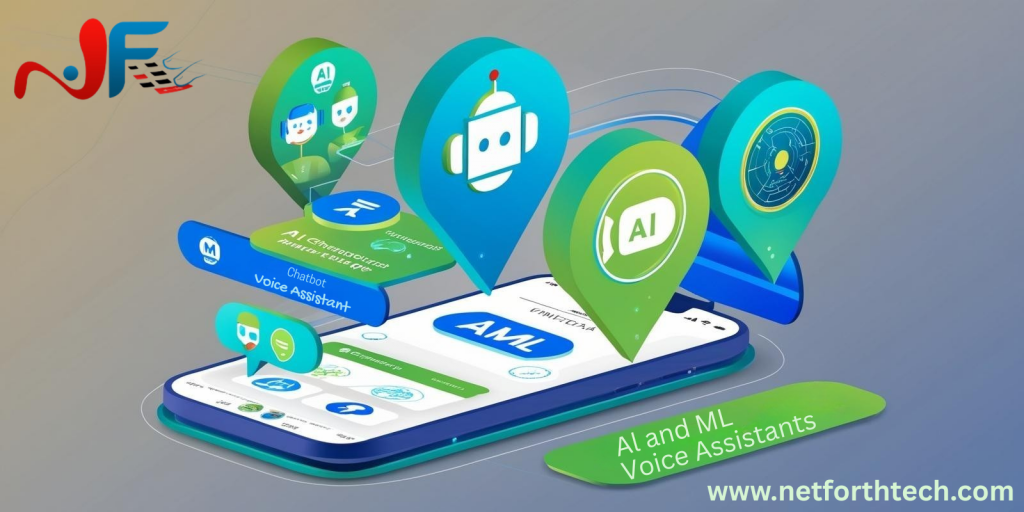
6. 🔄 Autonomous Finance
Welcome to Autonomous Finance, where AI doesn’t just suggest—it acts.
- Apps can automatically move money between accounts to optimize savings.
- AI engines can rebalance investment portfolios without user intervention.
- Users can set goals, and the app executes financial strategies on their behalf.
Think of it like Tesla’s Autopilot, but for your wallet.
7. 📈 AI for Risk Management and Compliance
With increasing regulatory pressure, fintechs must stay compliant. AI helps by:
- Monitoring transactions in real time for AML compliance.
- Generating audit reports.
- Flagging suspicious patterns across borders.
RegTech (Regulatory Technology) powered by AI is booming, helping fintechs navigate evolving global regulations with confidence.
8. 📊 Explainable AI (XAI) in Finance
Regulators and users demand transparency. Explainable AI helps banks and fintechs:
- Justify why a loan was denied.
- Explain portfolio risks.
- Show the logic behind investment recommendations.
This is crucial for user trust and regulatory audits.
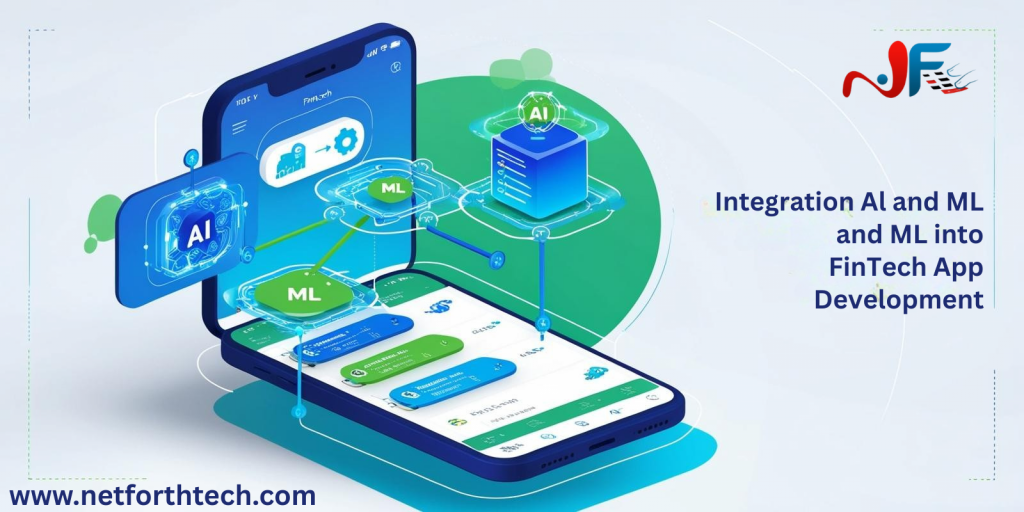
🧩 Integrating AI/ML into Fintech Apps: Key Considerations
If you’re building a fintech app in 2025, here are critical things to keep in mind:
✅ 1. Choose the Right Data
AI is only as good as the data it learns from. Ensure your app collects clean, structured data—preferably in real time. Open Banking APIs can be a great data source.
✅ 2. Prioritize User Consent and Data Privacy
With laws like GDPR, CCPA, and the growing push for data sovereignty, make sure you:
- Get clear user consent.
- Store data securely.
- Offer options to opt-out of AI personalization.
✅ 3. Partner with AI-First Development Teams
AI integration requires experience. Partner with development teams (like Netforth) who understand:
- ML model training and deployment.
- Real-time AI API integration.
- MLOps (Machine Learning Operations).
✅ 4. Plan for Model Updates
Your ML models need to adapt. Build systems that:
- Retrain on fresh data.
- Learn from user feedback.
- Adapt to regulatory changes.
🧠 Why Businesses Should Act Now
Fintech is rapidly moving from responsive to predictive to autonomous. Businesses that adopt AI and ML now can:
- Improve customer retention with personalization.
- Reduce fraud and risk.
- Increase revenue via smarter recommendations.
- Gain competitive advantage with AI-powered innovation.
Whether you’re a startup or an established financial institution, the time to invest in AI/ML-driven fintech app development is now.
🚀 How NetforthTech Can Help
At Netforth Software Solution, we specialize in AI-powered fintech app development—from conceptualization to launch. Our AI/ML experts build:
- Smart finance apps
- Robo-advisors
- AI-driven lending platforms
- ML-based fraud detection systems
We understand the future of finance is intelligent, automated, and user-centric. If you’re ready to build the next-gen fintech app, let’s talk.
📩 Contact us today to schedule a free strategy session.
📌 Final Thoughts
AI and ML in fintech are no longer optional—they’re essential. In 2025, apps that leverage these technologies are not just more innovative; they’re more secure, more profitable, and more trusted by users.
From generative financial advice to autonomous money movement, the possibilities are endless. Whether you’re just starting your fintech journey or scaling your solution, embracing AI is the smartest financial move you can make this year.
Ready to build the future of fintech with AI?
Contact Netforth Software Solution and let’s shape what’s next—together.







